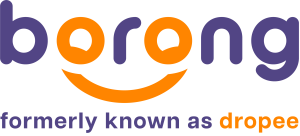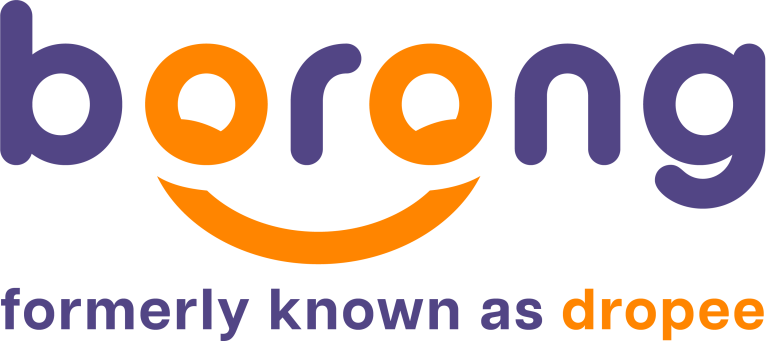In today’s digital age, the internet has transformed almost every industry across the globe. One of the most notable developments is the rise of the online seller – someone who markets products or services to a wide audience without needing a physical storefront or even holding inventory in some cases.
But how did the concept of online selling evolve to become such a major force in modern commerce? And how can suppliers in Malaysia tap into this growing opportunity?
Let’s explore the evolution, benefits, and actionable steps you can take to become a successful online seller, while also examining the key challenges to prepare for.
The Evolution of Online Sellers

The idea of selling online emerged alongside the concept of online shopping. According to History of Information, the first attempt at online retail dates back to 1979, introduced by British entrepreneur Michael Aldrich.
Today, an online seller is defined as an individual or business entity that markets and sells goods or services through digital channels. These transactions can take place between businesses and consumers (B2C), or between businesses (B2B).
In Malaysia and Indonesia alike, online selling began gaining traction in the 1990s, coinciding with greater public access to the internet. From early buy-and-sell forums to the sophisticated e-commerce platforms we see now, the industry has grown significantly.
Read more: Tips for Selling On a Wholesale Marketplace
Why Online Shopping is Thriving – and What It Means for Sellers
The rapid growth of online businesses across Southeast Asia, especially in Indonesia and Malaysia, can be attributed to five key factors:
- High smartphone and internet penetration
- A lifestyle shift towards digital solutions
- The convenience of shopping online
- Wide variety of products and marketplaces available
- Government initiatives supporting digital economic growth
From a business standpoint, selling online provides a number of distinct advantages, including:
- The ability to transact at any time and from anywhere
- Access to new customer segments through technology
- Reduced overhead costs compared to traditional retail
- Flexible business operations
- New business opportunities and partnerships
With such promising prospects, more entrepreneurs and existing suppliers are choosing to operate as online sellers.
4 Key Reasons to Become an Online Seller

Beyond the established benefits, many newcomers are turning to e-commerce and becoming online sellers for these four compelling reasons:
1. Flexible Working Hours and Locations
Running an online business gives you the freedom to work from anywhere, whether that’s your home, a warehouse, or even while travelling. As long as you have internet access, you can manage operations, interact with customers, and process transactions on the go.
2. Lower Start-Up Costs Compared to Traditional Retail
Offline businesses typically require a physical shop, staff, inventory space, and related infrastructure – all of which can be costly. In contrast, becoming an online seller requires significantly less capital investment. The leaner financial model, combined with the potential for high margins, makes e-commerce an appealing entry point for many Malaysian suppliers.
3. Broader Market Access
Thanks to the internet, you can reach a nationwide or even international audience without the expense of opening multiple branches. This wide-reaching visibility is a game-changer for businesses that want to scale quickly with minimal investment.
4. The Global Growth of Online Shopping
According to Tidio, over 2.14 billion people around the world made purchases online in 2023 – representing about 27% of the global population. This steady upward trend signals ongoing demand and a fertile ground for new and established online sellers alike.
Read more: How to Choose the Best Online Marketplace in Malaysia
So, How Do You Start Selling Online?
Deciding to become an online seller is just the first step. To be successful, especially in a competitive market like Malaysia, you’ll need a clear strategy and strong foundations. Here are four essential steps to begin your journey:
1. Decide What to Sell
Start by selecting your product range. Your choice will shape your target audience, marketing approach, pricing strategy, and even the platforms you choose to sell on. This decision should be based on your interests, market gaps, and available resources.
2. Conduct Market Research and Competitor Analysis
Gathering insights from your target market and understanding your competition will help you position your brand effectively. This process informs your business model, marketing strategy, and product positioning. The more data you collect, the better equipped you’ll be to stand out in a crowded online landscape.
3. Choose the Right Business Model
There are three common online selling models:
- Reseller: You purchase items in bulk from a manufacturer or distributor and resell them at your chosen price. You act as a middleman, adding value through branding, service, or reach.
- Dropshipper: You promote and sell products without physically storing inventory. When a customer places an order, a third-party supplier handles packaging and delivery, while the online seller manages customer service and promotion.
- Manufacturer: You produce and sell your own products. This model offers full control but requires infrastructure such as production facilities, warehousing, and logistics systems.
Each model has its pros and cons. For suppliers in Malaysia already dealing with stock and logistics, becoming a manufacturer or wholesaler online seller can be a natural expansion of your existing operations.
4. Plan Your Finances and Set Product Prices
It’s essential to develop a solid financial plan. Determine your cost structure, set pricing strategies, and forecast your revenue streams. The goal is to remain competitive while ensuring a healthy profit margin. Financial planning also ensures long-term sustainability, especially in the face of market fluctuations.
Don’t Overlook These 3 Critical Factors

Beyond the foundational steps above, there are several other elements to consider that will help secure long-term success as an online seller:
1. Develop a Sales Strategy
An effective sales strategy includes clear pricing, strong branding, reliable customer service, and a well-thought-out promotional plan. Online businesses without visibility and engagement will struggle to gain traction, regardless of the quality of their products.
2. Select the Right Sales Platform
The platform you use can make or break your business. Consider your business type and target audience. You can choose from:
- Major marketplaces (such as Shopee, Lazada, or Amazon)
- Your own online shop or website
- Social media commerce
- Borong Market, a dedicated B2B wholesale platform that allows suppliers in Malaysia to reach business buyers efficiently and effectively
Each option offers different levels of control, reach, and cost. For wholesale suppliers, Borong Market provides the added advantage of bulk order management and exposure to serious business buyers.
3. Prepare for Common Challenges
Every business comes with its share of challenges. As an online seller, be prepared for:
- Intense competition: You’ll need to find a unique selling point (USP) to stand out
- Stock and logistics issues: Delays and errors in delivery can impact customer trust
- Customer service: Managing returns, complaints, and feedback efficiently is vital
- Market demand fluctuations: Changing customer preferences can affect your sales
A robust operations system, reliable supply chain, and agile marketing approach will help you navigate these obstacles effectively.
Read more: Using an Online Marketplace to Grow Your Wholesale Business
Becoming an Online Seller is a Strategic Business Move
The rise of digital commerce presents immense opportunities for suppliers in Malaysia. However, becoming an online seller is more than just opening a shop on the internet. It requires planning, strategy, and resilience.
To succeed, you need to:
- Back decisions with strong market research
- Choose a suitable business model
- Select the right platform (consider Borong Market for wholesale needs)
- Build a strong brand presence
- Address logistical and operational challenges head-on
With a thoughtful approach and the right tools, you can tap into new markets, build customer relationships, and scale your business more effectively than ever before.
Maximise Your Online Selling Potential with Borong Market
If you’re a supplier looking to enter or expand your presence in the B2B e-commerce space, Borong Market is the ideal solution. Designed for online sellers who specialise in wholesale and business distribution, this platform streamlines the selling process and connects you with high-value buyers across the region.
Start selling smarter, not harder. Be a seller today and take your online selling business to the next level.


